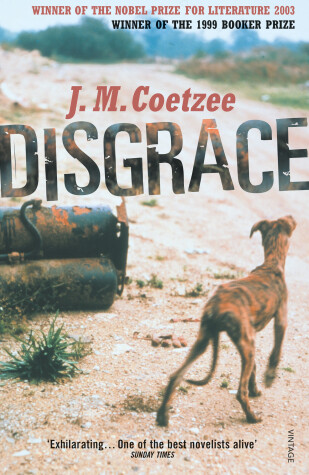Reviewed by celinenyx on
Disgrace is a double novel. We follow the disgrace of David, and the disgrace of his daughter. It's both about being human, and about being a human in post-apartheid South-Africa. The writing style is clipped and dry. I found the story of David's daughter, who lives as a white single woman in a black dominated countryside fascinating, though heart-breaking. Disgrace isn't a history lesson, but a tale of what it's like for some people to live in South-Africa. I can't really speak about its accuracy, but since Coetzee has won a Nobel Prize for literature I trust his judgement.
Reading updates
- Started reading
- 28 December, 2014: Finished reading
- 28 December, 2014: Reviewed
